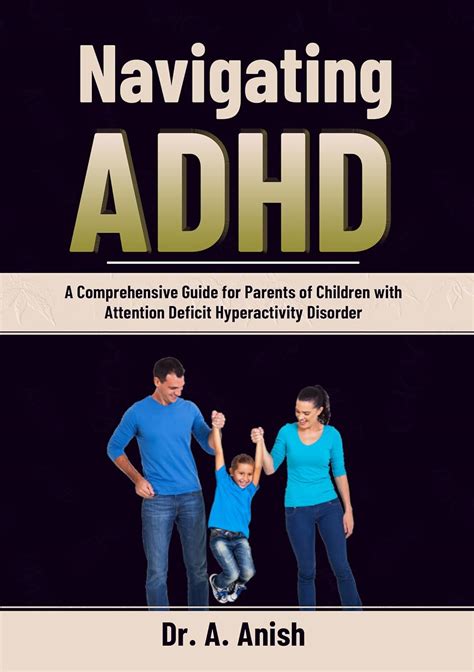Introduction

Attention deficit hyperactivity disorder (ADHD) is a common neurodevelopmental disorder characterized by difficulty paying attention, impulsivity, and hyperactivity. It can significantly impact an individual’s academic performance and overall well-being, particularly in the demanding environment of graduate school.
Prevalence and Impact in Graduate School
- According to the National Institute of Mental Health (NIMH), an estimated 4.1% of U.S. adults have ADHD, with a higher prevalence among college students (5.6%).
- Studies have found that students with ADHD face challenges such as:
- Difficulty following lectures and completing assignments on time
- Impaired working memory and organization skills
- Increased procrastination and avoidance of demanding tasks
- Reduced academic motivation and self-esteem
Assessment and Diagnosis
Accurate assessment and diagnosis are crucial for effective management of ADHD in graduate school. This typically involves:
- A comprehensive clinical evaluation by a mental health professional
- Examination of symptoms and functional impairments across different settings
- Assessment of comorbid conditions, such as anxiety or depression
Treatment Options
Management of ADHD in gradschool can include a combination of approaches:
Medication: Stimulants, such as Ritalin and Adderall, have been shown to be effective in improving focus, attention, and impulsivity.
Cognitive-Behavioral Therapy (CBT): Focuses on changing maladaptive thoughts and behaviors that contribute to ADHD symptoms.
Academic Accommodations: Students with ADHD may be eligible for reasonable accommodations from their university, such as:
* Extended time on assignments
* Note taking assistance
* Reduced distractions in testing environments
Lifestyle Management:
- Adequate Sleep: Sleep deprivation can exacerbate ADHD symptoms.
- Regular Exercise: Physical activity has been linked to improvements in attention and focus.
- Dietary Modifications: Some studies suggest that certain foods, such as those high in omega-3 fatty acids, may support cognitive function.
- Mindfulness Practices: Techniques like deep breathing and meditation can help calm the mind and improve attention.
Tips and Tricks
- Utilize Time Management Tools: Break down large assignments into smaller, manageable tasks and set realistic deadlines.
- Create a Structured Environment: Designate a dedicated study space free from distractions and create a regular study schedule.
- Use Assistive Technology: Consider apps and software that support note-taking, reminders, and focus tracking.
- Seek Support: Connect with support groups, counselors, or tutors who understand the challenges of ADHD in graduate school.
- Advocate for Yourself: Request accommodations and support from professors and administrators as needed.
Step-by-Step Approach
- Assessment and Diagnosis: Consult with a mental health professional for an evaluation and diagnosis.
- Treatment Plan: Develop a treatment plan that may include medication, therapy, and lifestyle changes.
- Academic Accommodations: Explore and request reasonable accommodations from the university.
- Implementation: Implement the treatment plan and accommodations consistently.
- Monitoring and Adjustment: Regularly monitor progress and adjust the plan as needed.
Pros and Cons of Treatment
Medication
Pros:
* Improves focus and attention
* Reduces impulsivity and hyperactivity
Cons:
* May have side effects, such as difficulty sleeping, appetite suppression, and increased heart rate
* Potential for misuse or addiction
CBT
Pros:
* Teaches coping mechanisms and behavior modification techniques
* Can improve self-esteem and motivation
Cons:
* Requires significant time and effort
* May not be effective for all individuals
Academic Accommodations
Pros:
* Create a more level playing field for students with ADHD
* Can reduce stress and anxiety
Cons:
* May require additional documentation or support
* May not always be fully understood or supported by professors
Conclusion
ADHD can present significant challenges in graduate school, but with proper assessment, treatment, and support, students can successfully manage their symptoms and achieve academic success. By leveraging a comprehensive approach that includes medication, therapy, lifestyle modifications, and academic accommodations, individuals with ADHD can overcome the obstacles and thrive in the rigors of graduate education.
Additional Resources
- National Institute of Mental Health: ADHD
- CHADD: Attention Deficit Disorder Association
- American Psychiatric Association: Diagnostic and Statistical Manual of Mental Disorders (DSM-5)
Keywords
- ADHD
- Graduate School
- Academic Performance
- Treatment Options
- Accommodations
- Self-Management
